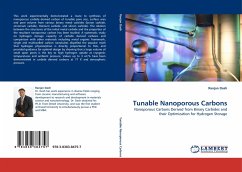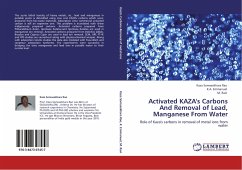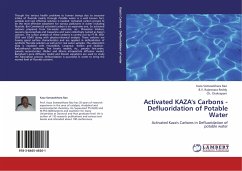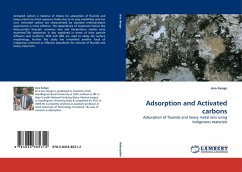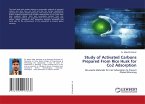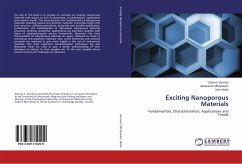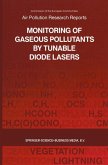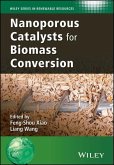This work experimentally demonstrated a route to synthesis of nanoporous carbide derived carbon of tunable pore size, surface area and pore volume from various binary metal carbides (boron carbide, zirconium carbide, titanium carbide, and silicon carbide). The relation between the structures of the initial metal carbide and the properties of the resultant nanoporous carbon has been studied. A systematic study on hydrogen storage capacity of carbide derived carbons and comparison with other materials including metal organic framework, single and multiwalled carbon nanotubes dispelled the popular myth that hydrogen physisorption is directly proportional to SSA, and provided guidance for optimal design by showing that a large volume of small open pores is the key to high hydrogen uptake at cryogenic temperatures and ambient pressure. Values up to 3 wt.% have been demonstrated in carbide derived carbons at 77 K and atmospheric pressure.
Bitte wählen Sie Ihr Anliegen aus.
Rechnungen
Retourenschein anfordern
Bestellstatus
Storno

